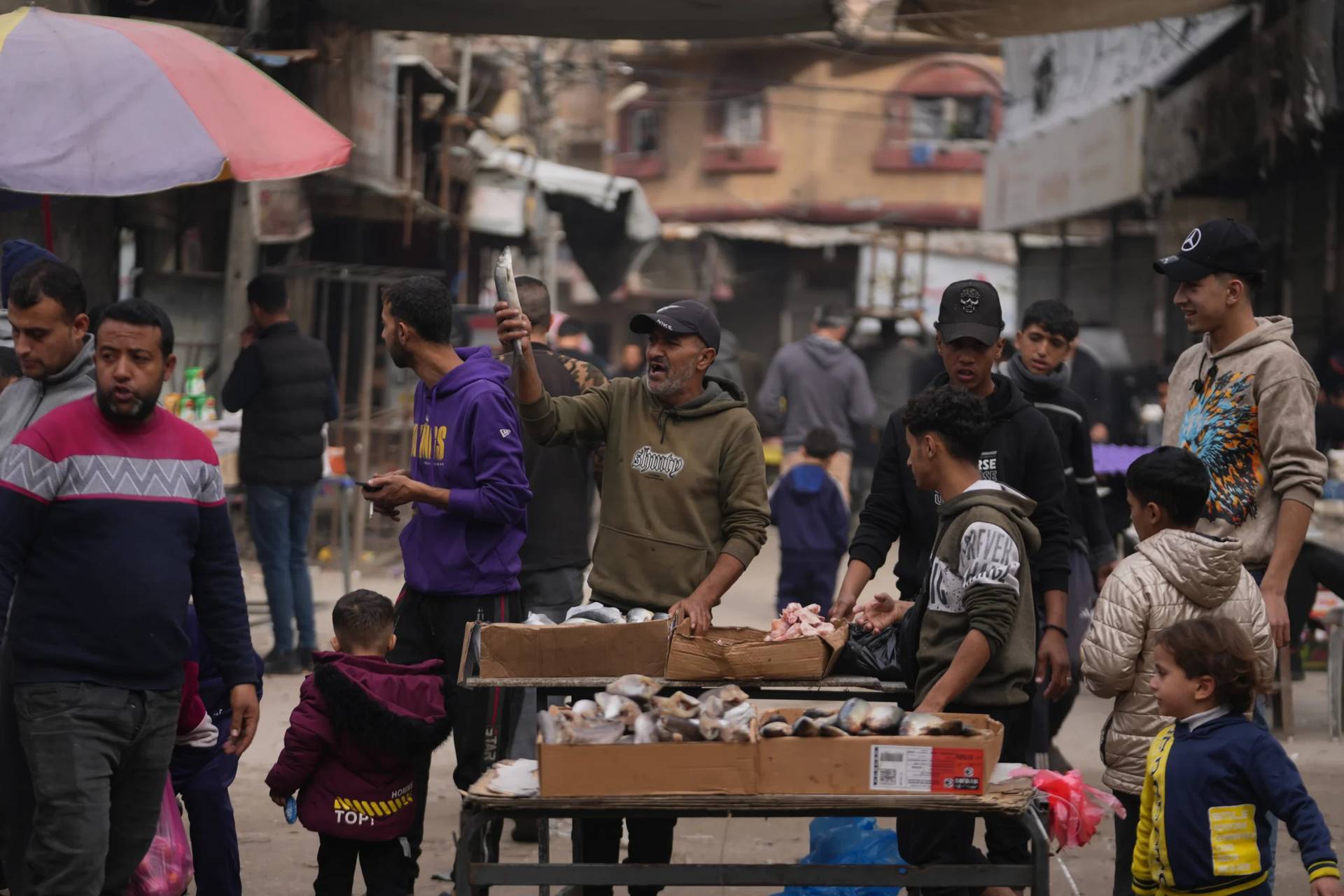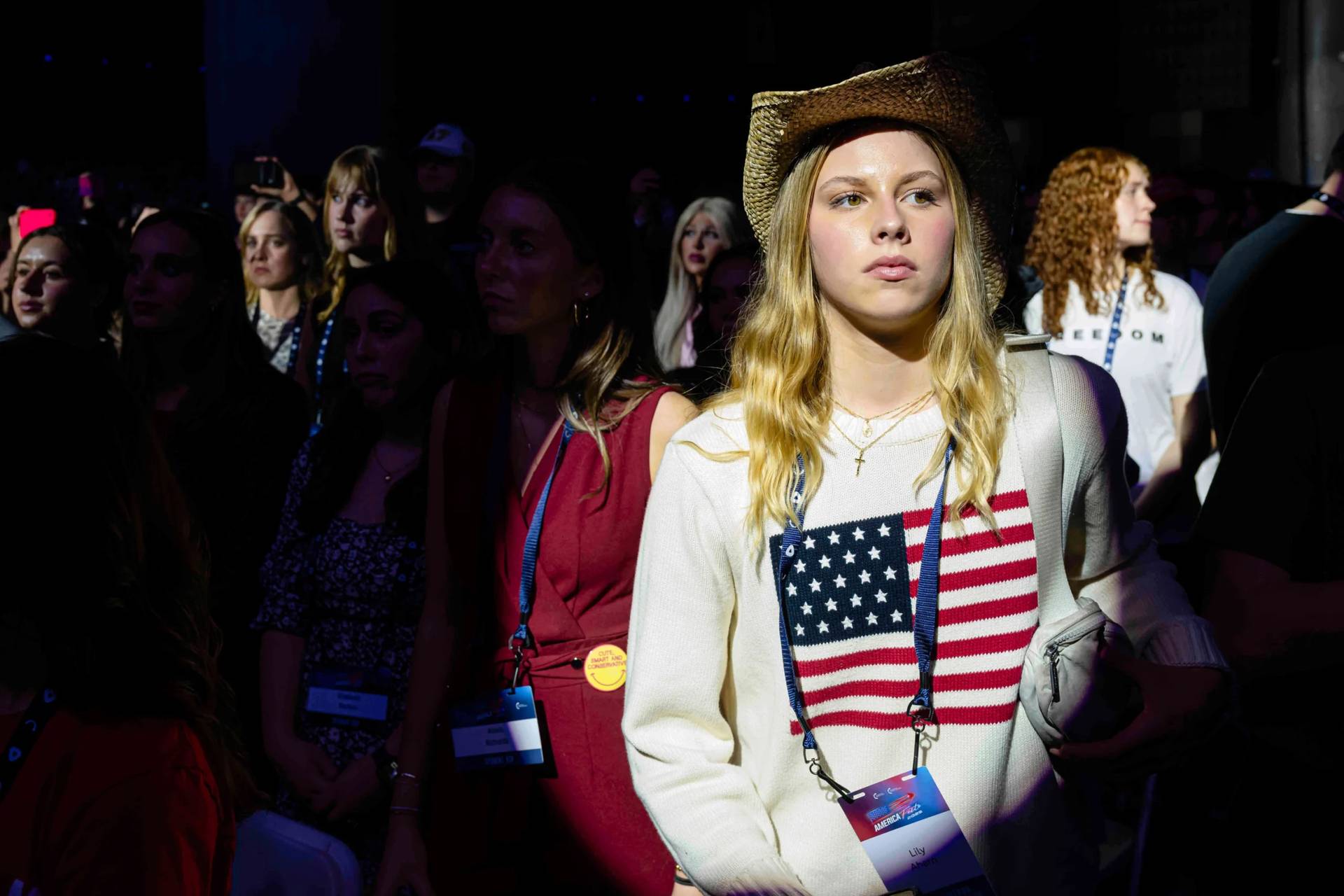Pope Francis, known in his native Argentina for never leaving home, collected more frequent-flyer miles in 2019 than in any of the previous six years of his pontificate, traveling to Panama, the United Arab Emirates, Morocco, Bulgaria and North Macedonia, Romania, Mozambique, Madagascar, Mauritius, Thailand and Japan.
Though each trip had its own raison d’etre, there were three major themes, all among the top priorities of Francis’s pontificate, which were front and center.
Though Francis’s Jan. 23-27 visit to Panama was decided long before he was elected as Successor of Peter because it was hosting World Youth Day (WYD), a Vatican-sponsored youth festival that takes place every two or three years with the almost-mandatory presence of the pope, the visit nevertheless served as a testing ground for the lessons of the 2018 Synod of Bishops on the Youth.
Upon his return to Rome, Francis defined WYD as a sign that “young Christians are the leaven for peace in the world,” and serve as a sharp contrast to today’s “sad” situation of confrontational nationalist feelings.
Hundreds of thousands of young people from five continents who attended the events “formed a great symphony of faces and languages,” he said during his weekly Wednesday audience.
“To see all the flags flying together, fluttering in the hands of young people, happy to encounter each other is a prophetic sign, a sign (that goes) against the tide of today’s sad tendency toward confrontational nationalist sentiments that erect walls, that close themselves off from universality, from the encounter among peoples,” he said.
While in Panama, Francis spoke to young people about faith in their own language, reminding them that Jesus is not “an interval in life nor a passing fad,” but a loving God who is concrete and close.
The trip also included a four-hour long vigil where he broke into hipster language, using words such as “app,” “influencer,” “cloud,” and “tutorial.”
He told the thousands gathered that God loves everyone, with their sins and imperfections, and that salvation comes through this love. The worst fall, Francis said, the one that “can ruin our lives, is to remain down and not allow ourselves to be helped up.”
Mary, he said, wasn’t an “influencer,” yet she became the “most influential woman in history,” because of her “yes” to God; and that life is not “a salvation up ‘in the cloud,’ waiting to be downloaded, a new ‘app’ to be discovered, or a technique of mental self-improvement,” nor is it a “tutorial” for the latest news either.
Though every trip in 2019 had an interreligious or ecumenical moment, arguably the most important came Feb. 3-5, when Francis visited the United Arab Emirates (UAE) and signed a declaration with the Grand Imam of Cairo’s Al-Azhar University on human fraternity.
The trip was historic, including the fact that the pontiff became the first in the modern era to set foot on the Arabian Peninsula, where he became the parish priest of some 130,000 Catholics who live in UAE and hail from 100 different countries.
Talking to Catholics during a Mass, he thanked them for their witness and urged them to live simply, in accordance to the beatitudes, in a country where luxury and excess are considered almost national virtues.
Yet he wasn’t there only to be a parish priest but to advance Catholic-Muslim dialogue, a continuation of his 2017 trip to Egypt and a prelude to his trip to Morocco, which he made soon after UAE.
Once again, Francis summed up his trip during a weekly Wednesday audience in Rome. The visit to the UAE and second meeting with the Muslim Grand Imam of al-Azhar, he said, “Wrote a new page in the history of dialogue between Christianity and Islam and in the commitment to promote peace in the world on the basis of human brotherhood.”
Francis first met the Grand Imam of al-Azhar, Ahmed el-Tayeb, during a 2017 visit to Egypt. The two signed a joint document on human fraternity Feb. 4.
In the document, “we condemn all forms of violence, especially those with religious motivation, and we commit ourselves to spreading authentic values and peace throughout the world,” the pope stated.
In this era, Francis said, when there is strong a temptation of discord between Christian and Islamic cultures, and to consider religions as sources of conflict, “we wanted to give a further, clear and decisive sign, that instead it is possible to meet, it is possible to respect and dialogue.”
He also recommended reading the document and trying to understand it, because it has helpful points for dialogue on human fraternity.
Despite the fact that the trip was set on dialogue, the pope pulled no punches, calling for true religious freedom while condemning the use of the name of God to justify violence during his opening remarks.
“No violence can be justified in the name of religion,” he said. “We need to be vigilant lest religion be instrumentalized and deny itself by allowing violence and terrorism.”
“I would like to emphasize religious freedom,” he said. “Without freedom, we are no longer children [of God] but slaves.” One cannot proclaim fraternity, Francis said, and then act in the opposite way.
Also joining the pope was the crown prince and de facto leader of the UAE, Mohamed bin Zayed al Nahyan.
Peace
Francis has been denouncing an ongoing and piecemeal third world war since the beginning of his pontificate, often choosing destinations that show this reality, such as his decision to go to the Central African Republic in 2015, Colombia in 2017, and Mozambique this year.
A joint message with Archbishop Justin Welby, head of the Church of England, calling for peace in the South Sudan on Dec. 24, also served as a reminder that the two have promised a visit once the war-torn nation manages to have a government.
Francis’s diagnosis of a piecemeal world war is hard to contest: In Syria, Russia, the United States and Turkey are fighting, in what many label a “civil war.” Peace has not come to Iraq, despite the alleged defeat of ISIS. Despite a peace treaty that ended a 50-year old civil war in Colombia, guerrilla movements continue to be active, and there are reports of Colombian guerrilla fighters in Venezuela, just as there have been allegations of Cuban military involvement in violent repressions in Nicaragua that began last year, after a civil uprising against the government of Daniel Ortega.
In Myanmar, the military continues to wage war against Rohingya Muslims, much like China continues to send Uighur Muslims to modern-day concentration camps (called “re-education camps”).
In Nigeria, Boko Haram continues its murderous activity, and there are also reports of other Islamic terrorist organizations waging a war against Christians in several African countries. The “Anglophone Crisis” in Cameroon, which began in 2017, left 234 dead in 2019.
These and other conflicts have been mentioned at some point by Francis. Yet nothing made his “never again war, never again” call, echoing his predecessor Pope Paul VI, more powerful than his trip to Japan in November, when he visited Nagasaki and Hiroshima, the world’s only two cities to have experienced an atomic bomb.
Francis condemned not only the use but also the possession of nuclear weapons as “immoral.”
The fact that money is “squandered” and fortunes are made through the “manufacture, upgrading, maintenance and sale” of destructive weapons as millions of children and families live in inhumane conditions, Francis said, represents “an affront crying out to heaven.”
“Here in this city, which witnessed the catastrophic humanitarian and environmental consequences of a nuclear attack, our attempts to speak out against the arms race will never be enough,” he said.
The pontiff argued that “fear of mutual destruction, or the threat of total annihilation” amounts to defending stability and peace through a “false sense of security” sustained by a mentality “that ends up poisoning relationships between peoples and obstructing any form of dialogue.”
“One of the deepest longings of the human heart is for security, peace and stability,” Francis said in Nagasaki, visibly moved.
“The possession of nuclear and other weapons of mass destruction is not the answer to this desire; indeed, they seem always to thwart it,” he said.
Follow Inés San Martín on Twitter: @inesanma
Crux is dedicated to smart, wired and independent reporting on the Vatican and worldwide Catholic Church. That kind of reporting doesn’t come cheap, and we need your support. You can help Crux by giving a small amount monthly, or with a onetime gift. Please remember, Crux is a for-profit organization, so contributions are not tax-deductible.















